Journey - Chapter 1
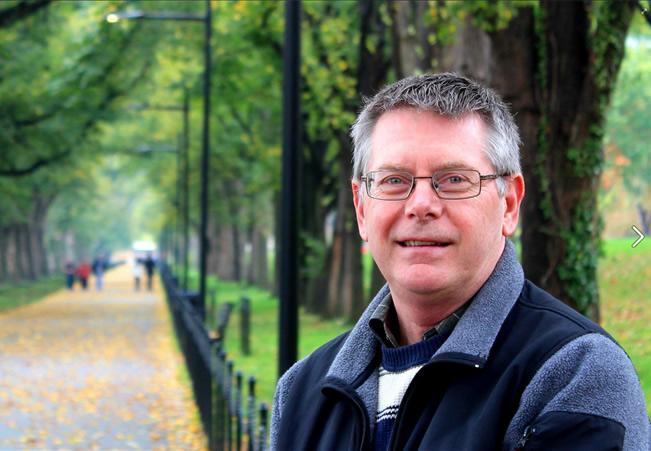
Introduction
BY JERRY MCKAY
Most of what characterizes my life today—work, family, and faith—looks little like what I thought it would when I graduated from college in 1980. Because of my sexual orientation, nothing is as I expected. I still identify as Seventh-day Adventist, but I do not have the same relationship with my church as I once had. I am open about my orientation to most people, and I have been in a relationship for nearly twenty-five years. Don’t let that fact, however, lead you to make assumptions about my theology. That I am a professing Christian is applauded by some and questioned by others. LGBT acquaintances and some heterosexual friends often ask me why I continue to associate with a faith community that has had a checkered relationship with its LGBT members. Others wonder how I can consider myself a Christian while in a relationship.
In addition to the why-do-I-continue and the how-can-I-consider-myself questions are a multitude of other questions that people have asked me over the years.
Naturally, people want to know when and how I first became aware of my orientation. Others are interested in my spiritual experience and how my faith and my orientation intersect and perhaps collide. Many questions revolve around my reparative therapy journey and how that impacted my belief in God and my relationship to the church. I am often asked about the pivotal moment I decided to stop trying to change my orientation and the events that led up to that moment. Related to that decision is the question of short- and long-term consequences. I’ve been asked about where I see God in the whole journey—before counseling, during counseling, and since accepting my orientation. And, finally, others want to know about my relationship, how it has evolved over the years, and the impact it has had on my life.
There are so many questions, and the best way to answer them is with a story.
To let you into my experience as deeply as possible, I’m going to tell my story in themes. While life is usually lived on a timeline moving from A to B to C, there are themes that overlap and benchmark events that change the course of our lives. This has definitely been my experience.
The themes are more significant during the first half of my life, but they do spill over into the present. They loosely follow along these lines: family dynamics, my religious world, school experiences, and my awareness of my orientation. Later I will describe my journey into the world of reparative therapy as I tried to fix myself and become heterosexual. Finally, I will look at my life since that experience. As I move through each period, I cannot help but add experience-in-retrospect comments that explain why I felt the way I did and why I made certain choices.
When you are finished, I want you to be able to say that you now know at least one person who is attracted to the same sex and what that experience is like. By letting you into some very private moments, I want you to come as close as possible to walking in my shoes.
Part One
– The First Fifteen Years
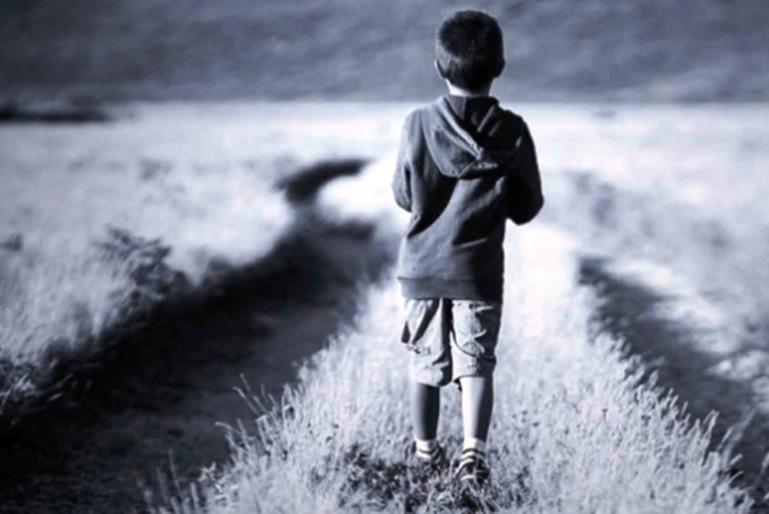
I begin with the first fifteen years of my life. Most of the things I share from childhood tie into my experience in later years as I tried to make sense of my orientation. As I begin, indulge me in sharing some of the quirky bits of my life in general as a child.
I was born in the summer of 1956 four years after my parents’ marriage. I’m the first of two children. My sister was a mid-winter baby, born in February three and a half years later. At the time of my birth my father, who had only eight years of formal education, was self-employed. He operated a small sawmill where he cut cedar logs into lumber and sold it to local dealers or individuals. Mom, having finished high school and then a certificate at a local secretarial college, worked part-time at a lawyer’s office in a nearby town. Home was in a tiny village in rural Ontario fifty kilometers west of Canada’s capital.
Our century-old house sat on the southeast corner of the only intersection in our village. If it had not been for a telephone pole sitting three feet from the corner of the house, the traffic would have eventually whittled away that last bit of lawn until we could have touched them from the living room window as they turned the corner. My bedroom overlooked that intersection. I always heard the passing traffic, and the one street light illuminated my bedroom every night.
For the first few years, we had no running water or indoor plumbing of any kind. When we finally got running water, it was only cold water. All bath water had to be heated on the electric stove in large boilers. I cannot imagine now, as an adult, existing only on a sponge bath every other day!
A wood furnace that blasted heat up through a single two-foot circular vent in the living room floor kept us warm during the winter. The iron grate in that vent could get hot enough to burn your skin, and I am told I stepped onto it once as an infant and blistered the bottom of my feet. It was a significant move upward when dad converted the wood furnace to a thermostat controlled oil furnace. I was already in elementary school when Bell Canada upgraded our operator managed party line to a “dial” phone. While my environment was rustic, there was always plenty of food on the table; and, unlike some of the neighbors, our car always started.
My free time was filled with self-made entertainment. During the summer, friends and I spent hours making up games, building tree forts in the woods around the village and swimming in the nearby river—all unsupervised in those days. I was barefoot half of the time and would arrive home in the evening with the soles of my feet blackened from walking on gravel roads that had been soaked in used motor oil to keep the dust down. In the winter, we traded forts in the forest for tunnels in snow drifts, and the pond we played around in during the summer became a skating rink.
As I got older, I added a few mischievous activities to my entertainment list. In addition to knocking on neighbors’ doors and running away to hide, another favorite winter pastime was playing “bumpers.” Under the cloak of very dark winter evenings, we would sneak out behind cars that had stopped at that one intersection below my bedroom window and grab onto the back bumper. Then, unknown to the driver, of course, we let the car pull us down the snow-packed street. As we slid along trying to stay upright while crouching behind the car, our only fear was of hitting an unexpected patch of sand on the road. If grabbing bumpers felt too risky, we opted for throwing snowballs at cars as they pulled away from that same stop sign.
Whether it was summer or winter, the highlight of my childhood was staying at my father’s family farm. I share the name Alexander with at least four in a line of six decedents who arrived in Canada from Dornoch, Scotland, to settle in this area in 1832.
My father’s father died in 1964, so I have only vague memories of him. I know, however, that he was an excellent fiddle player and often spent Saturday nights playing up a storm at a barn dance somewhere in the county. My grandmother occasionally accompanied him on the piano.
After my grandfather’s death, my father’s brother took over the farm and lived there with his mother until she died. For years my father’s sawmill was located at the farm. Dad would often spend the night at the farm instead of driving back home only to return the next day. I went with him every opportunity I could get. During the summer, at my request, dad would leave me at the farm for days on end. It was my second home, and my uncle was my second father.
My uncle taught me to drive the horses to help bring in the hay. The farm animals were my summer friends. It was a thrill to become so familiar with the cattle, sheep, and horses that they would recognize me when I approached them in the open fields and let me pet them. Some animals presented more of a challenge—the barn cats!
There were “wild” cats that hung out in the barns. I was fascinated at how my grandmother could get close to them, but no one else could. One day, after much observation, I was sure I could trick them. I put on grandmother’s straw hat, one of her sweaters, and an apron. Walking slowly and hunched over as she was, I approached the barn. Sure enough, the cats came up to me expecting the table scraps they would have received from grandma. I was elated to have gotten so close to those skittish cats. That day, I learned why wolves use sheep’s clothing. I also went to the farm during the school break at Christmas. There was something magical about accompanying my uncle to feed the cattle in the evening or to milk them—by hand—in the morning. In December, both chores were done in the blackness of a December night. I remember being fascinated at how much heat twenty cows could generate. In the early morning, even if it were -30⁰ C. outside, the barn was warmer than the house. Of course, the farmhouse was heated by one wood stove, and when the last flames went out in the middle of the night it meant you could see your breath by morning. In mid-January, the bedpan under the bed was a welcome indignity compared to a trip outside in the dark to the frigid outhouse.
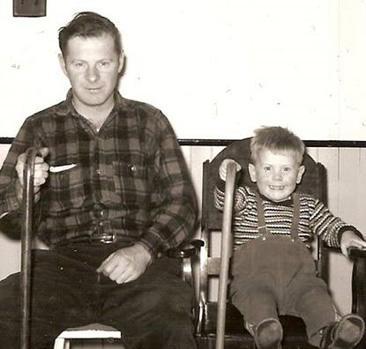 During the winter months, my father and uncle used to cut the cedar trees my father would later saw into lumber. I spent the day running around gathering dead wood to keep a fire going. By contrast, if I was not outside in the bush, I might just as easily have been indoors helping my grandmother prepare dinner on the woodstove or sitting with her as she darned my uncle’s woolen socks.
During the winter months, my father and uncle used to cut the cedar trees my father would later saw into lumber. I spent the day running around gathering dead wood to keep a fire going. By contrast, if I was not outside in the bush, I might just as easily have been indoors helping my grandmother prepare dinner on the woodstove or sitting with her as she darned my uncle’s woolen socks.
During the school break in March, I headed to the farm again. This time it was to help drive the horse-drawn sleigh to collect the sap from the maple trees so that it could be boiled down to maple syrup.
Being around a farm, I was well aware of some harsher realities. I knew where the meat on our table came from. I saw dead deer suspended in the shed to cure during hunting season. I watched a pig being shot and then hoisted up so it would bleed out thoroughly. On one occasion, I helped my uncle’s neighbor castrate a batch of piglets—don’t ask!
My description of childhood may sound like something from the 1830s, but it was my reality in the 1960s. These aspects of my childhood were fundamental in creating my respect for animals, my comfort with the solitude of the night and the forest, and being able to find pleasure in simple things. My life is richer because of them.
There was one event from my childhood, however, that haunts me to this day.
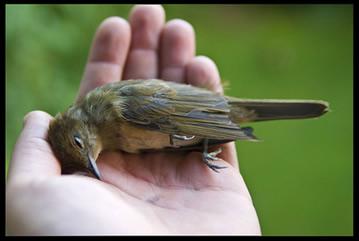
With the pellet gun my father had given me one Christmas, I used to shoot at bottles or targets on trees. Then one day, without any forethought, I aimed at a sparrow on a distant telephone pole. I don’t think I believed I would hit it, but I did.
When it fell to the ground, I felt sick to my stomach. It was such a powerful moment because I did know what it said in Mathew 10:29: “…not a single sparrow can fall to the ground without your Father knowing it.
Of course, this sparrow had fallen because of my actions. Holding that lifeless little bird in my hand, I vowed to do my best to never again needlessly or thoughtlessly harm anything. Of all the questionable things I have done in life, this one still stings my conscious. That painful experience gave me some idea of what God might feel should I be hurt or fall to the ground.
—Family Dynamics
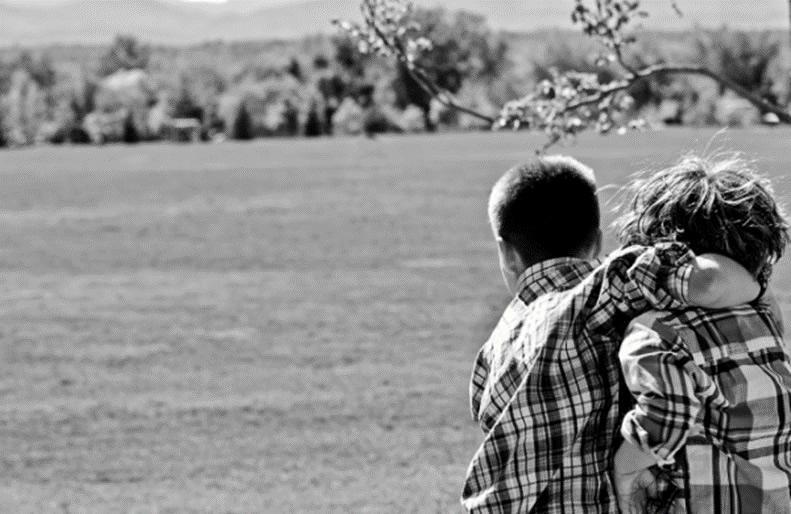 Running through all the positives of my childhood was the strained dynamics unfolding in my family. There was the ever-widening rift in my parents’ relationship. It was well underway before I was born. My parents’ marriage was never strong. In fact, it was probably doomed from the beginning because of significant personality differences and the fact that my father drank regularly.
Running through all the positives of my childhood was the strained dynamics unfolding in my family. There was the ever-widening rift in my parents’ relationship. It was well underway before I was born. My parents’ marriage was never strong. In fact, it was probably doomed from the beginning because of significant personality differences and the fact that my father drank regularly.
Drinking was a part of my father’s culturebeforemy parents were married. Next to fishing, it remained a popular pastime for him and his friends. My mother never liked to drink, and being rather shy and introverted found the weekend parties tedious. Soon she stopped going with him to those events, which significantly changed their social life and further strained their relationship.
Three and a half years after I was born and some seven years into my parents’ marriage, Marilyn entered the world. Although she was a very welcome addition to the family, health concerns complicated everything. By my sister's first birthday, she was diagnosed with a severe congenital heart defect. In 1962, Marilyn had to be rushed to Toronto for emergency heart surgery at the Hospital for Sick Children. It was a stopgap procedure, but it gave her body the needed time to develop before a more permanent solution could be found. For the next seven years, her heart struggled like an engine running on half its cylinders. Because of the malfunctioning valve, she constantly lacked oxygen; and you could see it in the purple hew of her lips and fingertips.
As mystery would have it, eight years later on Valentine’s Day, Marilyn had a second very successful surgery. Because of a string of complications, however, she ended up spending three months in the hospital 400 kilometers from home. Naturally, the whole event put stress on her and the family. My parents made numerous trips to Toronto together and separately. It was a costly time emotionally and financially. At that time, we had neither private health insurance nor did Canada’s early public health plan cover all the costs. Each month, mom sent a small check toward paying off the bill. Understandably, this stressed my parents and prompted my father to drink even more than he may have otherwise.
Unfortunately, alcohol brought all of dad’s fears, hurts, and disappointments to the surface. When drinking, dad could get rather ugly. He argued, criticized, and was often demeaning. There were numerous sleepless nights as he drank heavily into the early morning hours before passing out on the sofa. Christmas, with all the social drinking, was often chaotic; and the occasional Christmas tree came crashing to the floor.
This had a profound negative impact on all of us. It created a triangle of intimacy between my mother, sister, and me that unintentionally isolated my father. I could sense my parents’ stress, of course, and this affected my relationship with my father and my mother. At the same time, dad never lost a day’s work because of drinking and never had a traffic accident. Back then, drinking and driving was never questioned.
Not surprisingly, I developed a hypersensitivity to what was going on around me. When dad arrived home late at night, I could tell by the sound that the tires made on the gravel below my bedroom window how heavily he had been drinking. I could tell from subtle changes in my mother’s behavior that she was sad or distressed. I could see how arguments affected my sister. As a result, I grew up fast, taking on a sense of responsibility very early—too early. I learned to bury my feelings and do without emotional support because there wasn’t always enough to go around.
—My Religious World
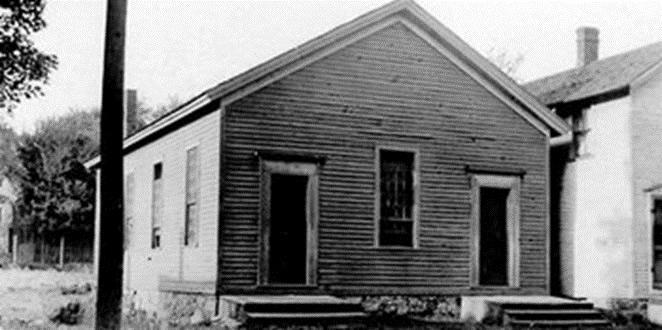
Religion was always part of my upbringing. Sometimes it was in the background and at other times it was up close and personal. On my father’s side of the family Baptists, Anglicans, United Church of Canada, and Jehovah’s Witnesses were represented. My mother’s background was Anglican, although she did not attend. There were plenty of Catholics in the county, but none “in the family;” but I knew from overhearing conversations that they were “good people.”
I quickly learned that doctrinal differences were fodder for squabbles and that religious belief did not guarantee civility. One time, my mother and my dad’s sister’s husband left the house and sat in the car while dad and his sister went at it in the house over some point of theology. Despite these religious squabbles between family members, I never heard hellfire and brimstone messages from my parents. Religion may be suspect, but God could be trusted.
My father had read the Bible regularly over the years and had strong opinions about what he believed it said rather than what people thought it said or wanted it to say. While he knew plenty of good Christian folk, he had no qualms about pointing out that too much religion made people “crazy in the head.” My dad’s faith was best expressed by the sayings he often repeated. “We are all under the curse of the earth,” he would often say, “and you just have to make the best of it.” Dad also believed just as strongly that God’s mercy outweighed his wrath. My father wanted to be baptized, but because baptism was often synonymous with joining a particular church he never was. He was uncomfortable with the idea that any one group could be “all right,” as most claim to be. It saddens and perhaps angers me that no minister simply baptized dad into the Christian faith and then let God work out what denomination he joined or what lifestyle choices he might make.
Around the time I started school, I was sent to the United Church in our village, but only during the summer. Summer attendance was small, but attendance was so small during the cold winter months that it didn’t warrant heating the old wooden church. It sat vacant all winter waiting for the return of spring. I don’t have many memories of attending that church, although I did have a collection of lapel pins indicating I had completed several levels of Sunday school. Most memories are of the wooden pews and the smell of a building that been closed up for the winter.
My earliest memories of religious instruction are of my mother reading my sister and me the odd Bible story and patiently encouraging us to memorize The Lord’s Prayer and the 23rd Psalm. I remember her occasionally singing Jesus Loves Me and Away in a Manger.
Like most people, I can only repeat the first verse of Jesus Loves Me, yet the words, “Little ones to Him belong; they are weak but He is strong” still move me to tears faster than any sermon. Those simple words were the seeds of my faith and the message they taught would sustain me in the future when things became profoundly confusing. Even today, when theological discussion and debate become too abstract or I become overwhelmed with trying to “do all the right things,” my spiritual default is to rest in the belief that we all belong to God and that God wants everyone to know that there is room in His house for every “little one.”
In addition to all the other denominations circling about, there was one that I was not yet aware of. While no one in my family was Seventh-day Adventist, Adventism was closer to home than I realized. In fact, every Sunday morning, my father would listen to The Voice of Prophecy, an Adventist radio broadcast coming from far-away California. When I hear the chorus used to open the broadcast, “Lift up the trumpet and loud let it ring, Jesus is coming again,” I can still see my father sitting in his chair listening to the radio preacher H.M.S. Richards, Sr. as the smell of bacon cooking filled our home. Eventually, I would learn that dad liked many of the things he heard on those programs, that my parents knew people in the community who were Adventist, and that there were Adventist books in the house that had been given to my parents. I later learned that my mother’s father had also been reading Adventist literature for years.
For years, however, Adventism was just in the background. Then, when I was eight, in a move that seemed out of the blue, my mother took my sister and me to the nearest Adventist church on Easter of 1964. It was a small congregation founded, in fact, after a series of evangelistic meetings in 1920 by the same radio preacher my father listened to each Sunday morning. I had no idea that on that morning this faithful little group would become my permanent spiritual home. We went to church every Saturday morning after that. This was a pivotal moment in my life.
My sporadic Sunday school attendance was replaced with regular Sabbath school attendance. Saturday morning became the highlight of my week. My children’s class with its songs and felt-board Bible stories became a weekly sanctuary from all that was chaotic and stressful at home.
In the next few years, on my own initiative, I embraced the key theological and lifestyle markers of the Adventist church. That meant I was seen as a bit of an odd-ball among relatives. Going to church on Saturday was odd enough, but becoming a vegetarian, in the mid-60s in meat-eating rural Ontario, was viewed with suspicion. I know folk, even my father, thought I would soon fade away to nothing or drop dead at any moment. That a Christian did not drink was not that unusual, but dropping tea and coffee from my diet was a bit fanatical for most.
My opposition to drinking often annoyed my father and created a lot of tension between us as I grew older. When Dad reminded me that the statement “a little wine for thy stomach’s sake” was from the Bible, I reminded him that the Bible also said, “wine is a mocker, strong drink is raging.” There were plenty of heated arguments about the definition of what “a little wine for thy stomach’s sake” meant. These arguments got us nowhere. There was always more heat than light, and I regret any element of those arguments that implied I was a better person than he.
On a humorous note, Dad used to irritate visiting pastors who encouraged him to “give up the drinking.” Once they had counseled him, he would ask them to tell him what faithful Noah did shortly after coming out of the ark. I know it galled them to admit that one of the Bible’s greats planted a vineyard and made wine and then drank it. There was no winning the wine argument. And of course, dad knew what Jesus had done with the water!
Becoming involved with any church opens doors and opportunities one might never have otherwise. One of the early highlights for me was going off to summer camp.
Going to a Christian camp was a high for me. It seemed so perfect—everyone working together to do and be like Jesus. I threw myself into every activity and when each week came to an end, I did not want to go home. When I got home, I slept for days out of exhaustion.
One example illustrates my attitude during those summer camp days. While most kids enjoy camp just for the fun of it, and a few spend their time looking for opportunities to make trouble, I set my sights on becoming King of Camp! That honor required a week of exemplary conduct, but I was up for the challenge. Perhaps I was trying to please others out of a need for praise and attention. Maybe the order and conformity it required gave me a sense of control in my life. Whatever the reason, I was able to meet the challenge and was crowned King of Camp one summer. I was sure I was doing just as Jesus would have wanted.
Although regular church attendance provided a social outlet, I did not see much of my friends outside of church because everyone was spread out over the county. Most friendships were from the village where I lived; I saw them only at school.
Whether it was at home or at school, most aspects of my life were becoming compartmentalized. That included my faith experience. Although it dominated my thinking, it was becoming a very private and solitary matter. I would shut myself away in my room or hide up in a large Manitoba Maple tree beside the house to read my Bible, talk to Jesus, or complete the Bible studies I received by mail from that Adventist radio broadcast in California. I did read the odd Hardy Boys mystery book, but I spent more time methodically working my way through The Desire of Ages, a 600-page devotional by Ellen G. White on the life of Jesus.
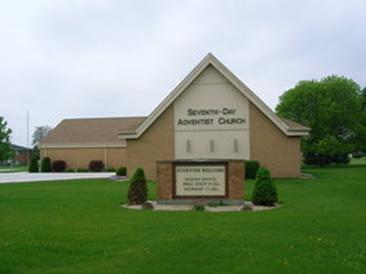 The high point of my spiritual journey was the day I was baptized in 1969. Since the Adventist church practices baptism by immersion, we had to go into Ottawa where there was a functional baptismal tank. Walking down into the water and being totally immersed by my pastor was a profound bodily experience.
The high point of my spiritual journey was the day I was baptized in 1969. Since the Adventist church practices baptism by immersion, we had to go into Ottawa where there was a functional baptismal tank. Walking down into the water and being totally immersed by my pastor was a profound bodily experience.
My interest in all things religious did have its positives and negatives.
On the positive side, lifelong attitudes were being shaped by my meditation on the example and teachings of Jesus. I was drawn to the way He related to people, and I wanted to be like Him. On the negative side, my adolescent enthusiasm lacked experience and I tended toward Pollyanna-like expectations. While I did not intend to be judgmental or legalistic, I struggled with the fact that others did not always do what God wanted, as I understood it. In my 12-year-old mind, I knew that if everyone did what God wanted, parents would not argue, everyone would be a vegetarian, relatives would go to church on Sabbath, and everything would be right in the world. I was left puzzled when God did not answer every earnest prayer. Had God done so, my sister’s worldly nail polish would have curdled in its bottle, the TV would have stopped working Friday evening as the sun set, and Jesus would have turned my father’s wine back into water.
All of this was in contrast to what other friends were up to. While most of my male friends were out playing sports, experimenting with cigarettes, alcohol, and learning about the female anatomy from their father’s magazines, I read my Bible and thought about how to give Bible studies to the neighbors.
